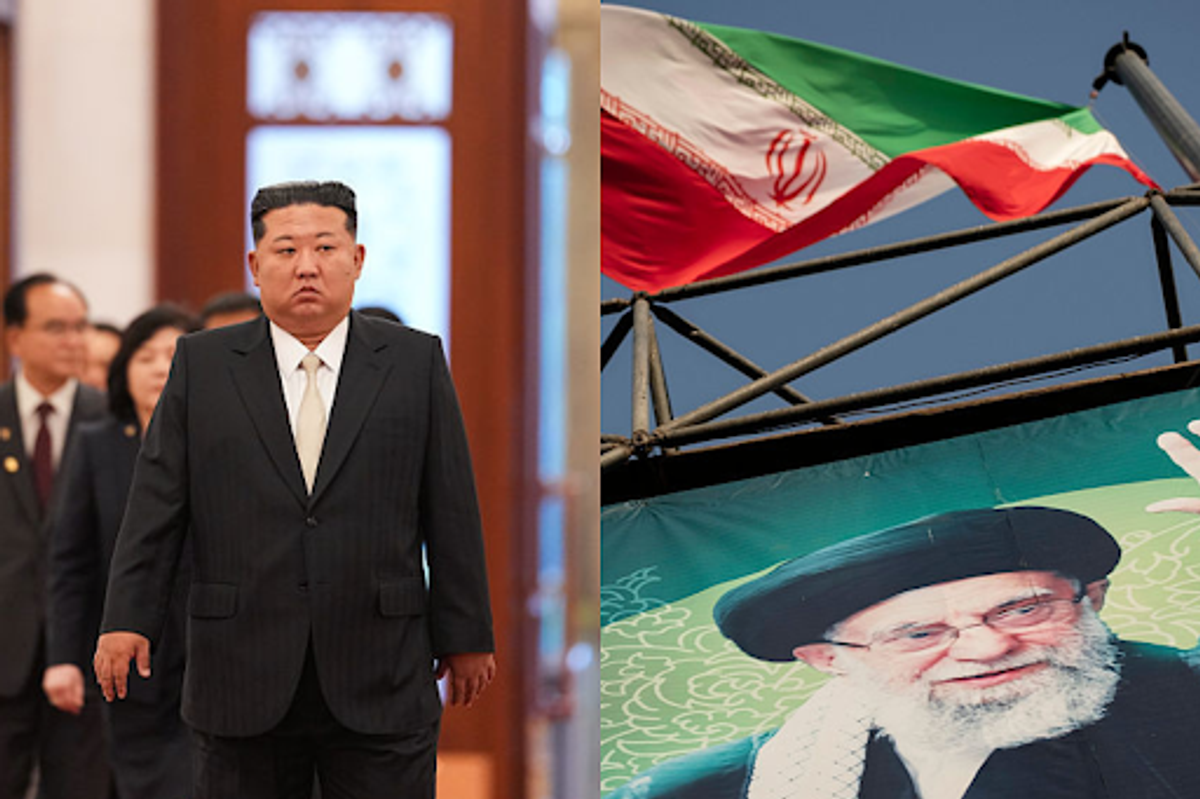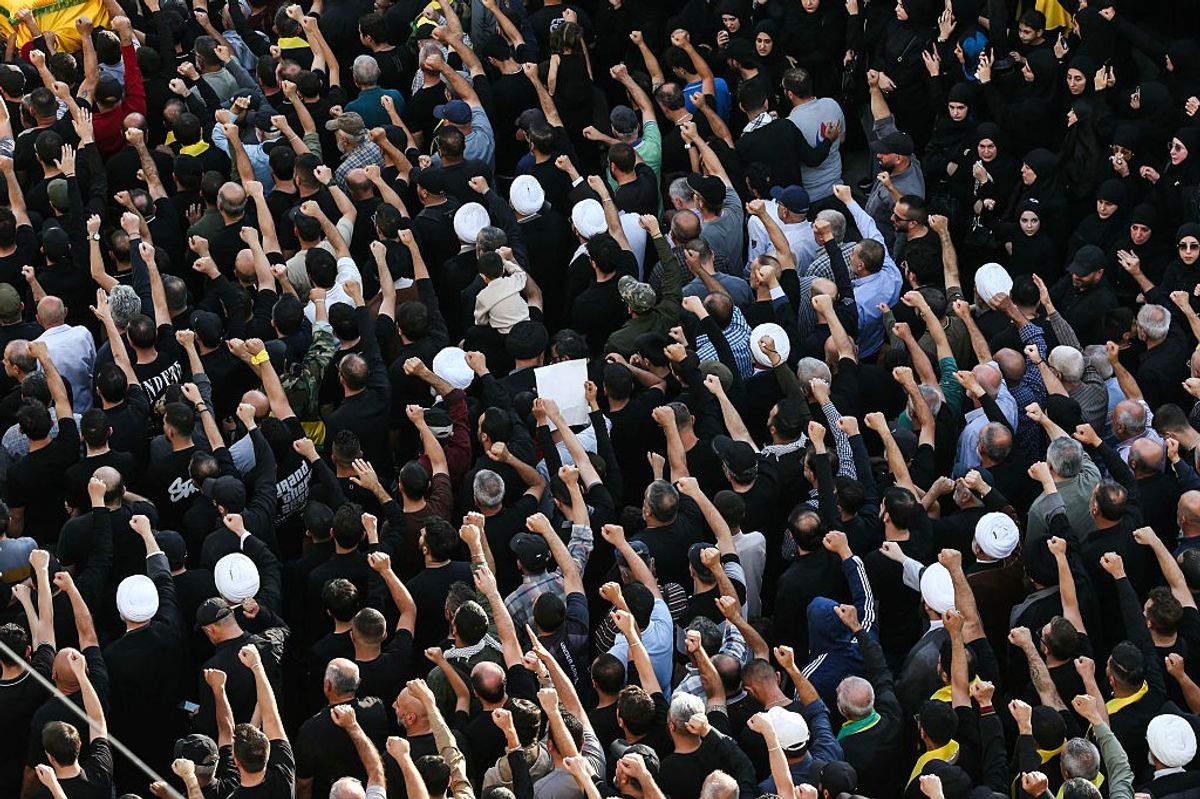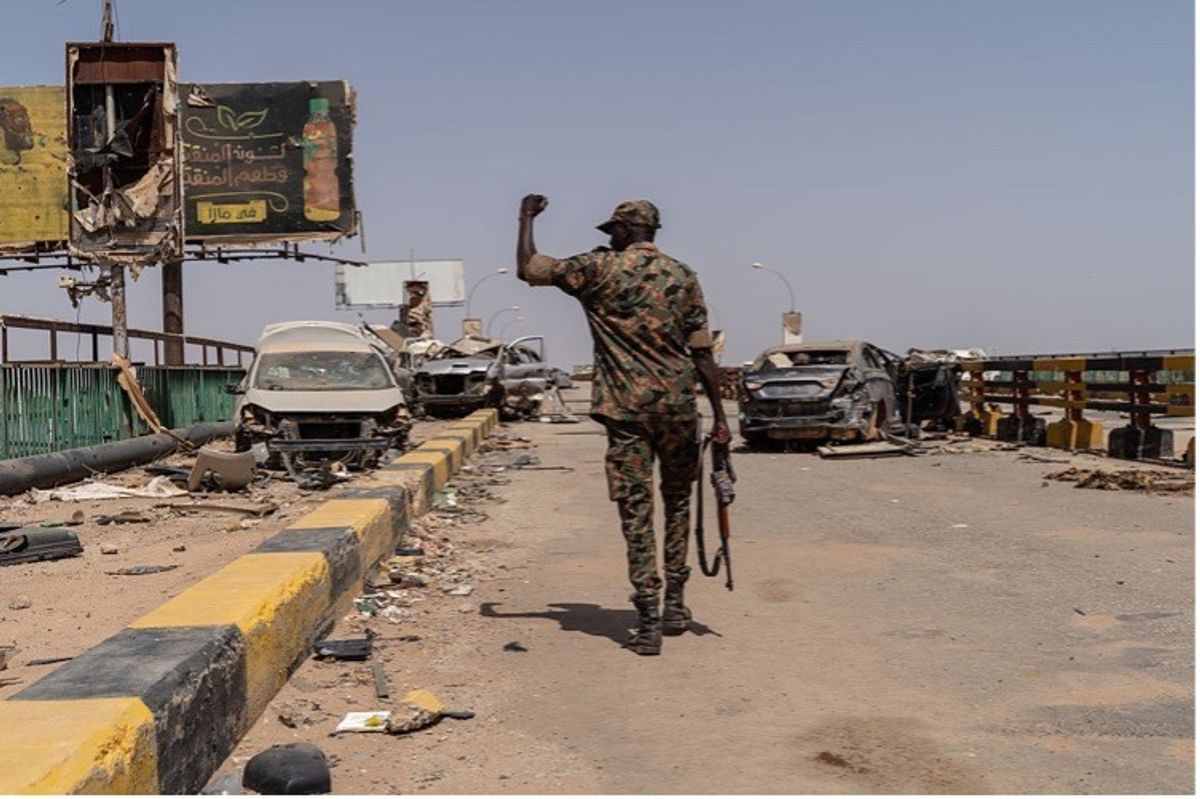EXPERT INTERVIEWS — The final days of the Biden Administration are coinciding with an all-out push to reach a ceasefire-for-hostage deal in Gaza. And in a rare case of what might be called "transition diplomacy" in the U.S., senior officials from the current administration – CIA Director William Burns and Middle East special envoy Brett McGurk – have been joined by the Trump Administration’s Middle East envoy Steve Witkoff in the efforts to bring Israel and Hamas to an agreement.
The words “breakthrough” and “imminent deal” have been used all too often in the fifteen months since Israel began its war against Gaza, and in that time there has been only one agreement – a temporary one – to exchange a pause in hostilities for a return of hostages. That was in November 2023. More than a year later, there are higher-than-ever hopes that these last days of the Biden Administration may bring a longer-term deal to fruition.
The negotiations are secret, of course, but various details are known: A ceasefire lasting 42 days, during which Hamas would release 33 hostages - women, children, people with severe injuries and those 50 years and older. The draft deal would also allow Israeli forces to stay in the Philadelphi Corridor on the Egypt-Gaza border during an initial phase, and to maintain a separate buffer zone inside Gaza along the northern border with Israel. Residents of northern Gaza would be allowed to return home, a list of Palestinian prisoners would be released to the Gaza Strip, and – if these elements of the deal are carried out – significant infusions of humanitarian aid would begin to flow into the Gaza Strip.
Hamas has reportedly approved the draft deal; it must now be approved by Israel’s war cabinet and full cabinet.
The Cipher Brief spoke with Ambassador Gary Grappo and Dr. Emile Nakhleh, experts in our network and longtime experts when it comes to the Middle East, about the prospects for an agreement and what might follow.
Their comments have been edited for length and clarity.
The Cipher Brief: How would you assess your own degree of hope at this moment?
Ambassador Grappo: I think there's somewhat more reason for optimism today than previously. But I would caution that it's very guarded. There are lots of reasons to argue that nothing is going to happen between now and next week, when Mr. Trump takes office. I will say the prospects seem somewhat better, certainly given a stream of comments having been made by senior members of the administration, including Jake Sullivan and earlier, Anthony Blinken, Secretary of State.
Dr. Nakhleh: I'm cautiously optimistic, for at least three reasons.
One is the pressure by both the outgoing administration and the incoming administration. The Biden administration wants something to happen before they leave office. The incoming president has always said he will resolve this issue on day one. He would like to see a ceasefire. So we see here both administrations are interested in concluding some sort of a ceasefire within the next 10 days or a week.
The second reason I'm optimistic is that even though Israel and Netanyahu have been very successful in liquidating the threat from Hezbollah, from Hamas, and from Iran, Netanyahu realizes that he could not have done all of these things without American weapons and support, political and military. And that's a strategic calculus he really must be thinking about, that the bigger factor in the equation is the United States. And both administrations, outgoing and incoming, want him to conclude a peace settlement. And I just saw a public opinion poll in Israel on Haaretz showing that 71 % of the Israeli public want a ceasefire.
So these factors – the diminishing threat of Hamas, Hezbollah and Iran, and the pressure from the United States and certainly the pressure from the Israeli public are all pushing Netanyahu to conclude a ceasefire deal. And let's not forget that in the last week, the Israeli military has suffered a number of casualties, senior officers as well as soldiers in Gaza — over 10 deaths in the last week. And these casualties are also putting pressure on Netanyahu to conclude the ceasefire.
The Cipher Brief: One of the many stumbling blocks has involved the nature of a ceasefire. Hamas has insisted that it should be permanent, absolute. And the Israelis have insisted – Netanyahu used the word “partial”, so that if Israel sees something happening, it reserves the right to go in. How do you see the two sides getting a little bit closer on this question?
Ambassador Grappo: Hamas wants a permanent ceasefire. They need a permanent ceasefire to survive and to rebuild. So for Hamas, these negotiations are in fact existential. That is not the case for Israel. Although the war in Gaza is extremely costly for Israel, in terms of manpower and funds expended, the Israeli leadership enjoys the support of the Israeli public in pursuing this war to the ends that everyone would like to see in Israel. And so the advantage is clearly, undoubtedly on the side of Israel, not only in the war itself, but in these negotiations. There’s all the reason for Israel to hold its line for a temporary ceasefire as opposed to permanent. And that's what I believe is blocking Hamas, at the moment, in agreeing to it.
In my view, the major sticking point is how long this will be. And that's an existential question for the Hamas leadership. I also suspect that there's a fair amount of disagreement between the Gaza-based faction of Hamas, and those outside of Gaza, who are probably driving for a ceasefire under whatever conditions they can get at this point.
One final point I want to mention here, and that is that there is a deadline, and the deadline is next week and the transfer of power here in the United States from President Joe Biden to President-to-be Donald Trump, who will most definitely give Israel far more leeway in how it may wish to pursue this war in its many aspects, beyond how Mr. Biden may have approached it.
The Cipher Brief: On the fate of the hostages, is that not producing more pressure on Netanyahu and the government of Israel?
Ambassador Grappo: Certainly from the Israeli perspective, the domestic perspective, it has a great deal of bearing, and it would appear that they've made substantial progress. Whether they have been able to resolve all the issues is uncertain. From Israel's perspective, it wants this issue completely resolved, or in the event of a temporary ceasefire, a specific timeline for the release of all hostages, including the remains of those who died while in captivity. And I suspect there will be a specific timeline for that, and a rigid condition in the sense that no release means a resumption of the war. And this is another added pressure point.
Dr. Nakhleh: [There is a] weakening position of the radical ministers in Netanyahu's government. [National Security minister Itamar] Ben-Gvir is really on shaky ground today, which I thought he wasn't a week ago or 10 days ago. Even Netanyahu hinted the other day that he's afraid that if he signs a ceasefire, his government would collapse. But basically he was talking about Ben-Gvir. And I think the Israeli public has had it with Ben-Gvir, who has been against any ceasefire.
With a ceasefire, Netanyahu might be in a stronger position to stem the pressure from the extreme right wing of his government. He might be in a position – a courageous position – to say, fine, if they want to leave the government, let them leave. That changing domestic politics in Israel politics gives me cause for optimism. Of course, cautious optimism, because the wild cards in that region are legendary.
The Cipher Brief: There is a school of thought that says that because President-elect Trump has such a strong relationship with the Israeli leader, he might be better placed to push him, and exert some pressure on him to bring this to an end.
Ambassador Grappo: I don't think there's any question that Donald Trump wants to see this war ended, and ended soon. Probably better for him if it occurs on his watch and he can claim the credit. And in that sense, maybe [Netanyahu] is looking to do him a favor, for a return. And that's the way Donald Trump works. You do him a favor and he does you a favor. So that’s clearly is a factor in all of this.
I think from Hamas's perspective, there will be less pressure on Bibi from the United States to act, other than to see an eventual end to the war, but the conditions for that, I think, would be largely up to the Israelis without a great deal of American pressure. So that's how I think Hamas is looking at this.
The Cipher Brief: The war is going to end at some point. Could you talk a little bit about what comes after, other than I would imagine a big infusion of humanitarian aid and the obvious benefit of the end of hostilities. What other benefits will accrue to the region in the event that a deal happens?
Ambassador Grappo: This will obviously moot a lot of the criticism directed toward Israel, both from within the region and internationally, as the ceasefire goes into effect and as greater amounts of aid are able to enter Gaza.
And by the way, part of that ceasefire must include some of the parameters with respect to aid deliveries – how they will be managed, and how they will address the security around the deliveries, because that right now is a major factor, a major challenge to delivering humanitarian aid. So all of that will have to be sorted out. I think a lot of Arab countries – the UAE has already spoken publicly about it – want to participate in that, and play a role in that. And the extent to which more aid can flow and ameliorate this humanitarian crisis, the more it will diminish the pressure on Israel, and the attention of people in the Middle East will be focused elsewhere, whether it's Lebanon, whether it's Syria, or on the big problem, and that is the conflict between Iran and Israel.
Dr. Nakhleh: I think you can enumerate several benefits. One is that destruction will hopefully end in Gaza, and that aid will come to the people of Gaza, because these are the people who have suffered more than anybody else. So aid will move into Gaza.
And then, some sort of a Palestinian Authority-Hamas agreement will occur about the governing of Gaza. But regionally, I think we will see a stop to fighting on the Israel-Lebanese border. We could see more rapprochement – especially if Israel makes a statement in support of a two-state solution, that relations with the Arab states, especially in the Gulf, might expand to include Saudi Arabia. This is not going to happen until a ceasefire occurs in Gaza, and then a discussion for a path forward toward a future for Palestine. And I really think these are the potential benefits that could occur from a ceasefire.
Read more expert-driven national security insights, perspective and analysis in The Cipher Brief because National Security is Everyone’s Business.













